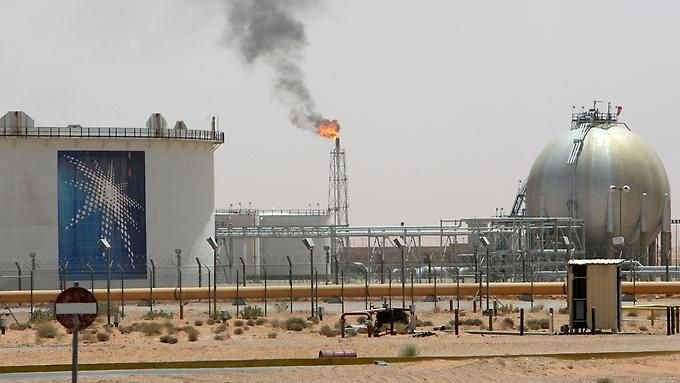Iran Nuclear Deal Prods Saudi Arabia To Raise Crude Oil Prices In Asia

Saudi Arabia is raising the price of crude oil it ships to Asia. The oil-rich kingdom has been selling oil to Asian nations at a discount for much of the past year to keep competitors from snatching market share amid a global oil glut. Starting in May, it will narrow the discount.
The move comes as demand for oil is declining somewhat -- and supply is already abundant and possibly growing even larger. Economists warn China, with its weakening economy, won’t offer the same annual boost to oil demand that it has in the past. Meanwhile, Iran could soon add more oil to global supply if a comprehensive nuclear deal is finalized in June.
Saudi Arabia’s decision to raise oil prices in Asia helped lift oil prices on Monday. Brent crude was up 2.18 percent to $56.15 per barrel in London on light trading because of Europe’s Easter Monday holiday. West Texas Intermediate jumped 2.12 percent to $50.18 per barrel in New York Monday morning. Prices had been climbing ahead of last week’s talks between Iran and world powers, but they plunged Thursday after global leaders reached a preliminary agreement that could allow Iran to increase oil exports later this year. U.S. and Brent trading was closed Friday for the pre-Easter holiday.
Not everyone is convinced an Iran deal would have an immediate effect on the global oil supply, or that China -- Asia’s largest oil consumer -- can maintain the kind of demand that helped soak up some of the excess supply last year.
“The jury is still out on Iran but even assuming crude comes back, we don’t think it will be too dramatic, with no more than 300,000 barrels a day within the next half year,” Eugene Lindell, a senior analyst at JBC Energy GmbH in Vienna, told Bloomberg Monday. “The bottom line is there is still a lot of crude out there with or without an Iran deal.”
Global oil prices fell by nearly half last year. In March, Saudi Arabia said demand is increasing. The state owned Saudi Arabian Oil Co. told Bloomberg Sunday it would lower the discount on oil exports to Asia from 90 cents per barrel below the regional benchmark price to 60 cents.
If the International Atomic Energy Agency confirms Iran is complying with demands to scale back its nuclear program, the U.S. and the European Union would lift sanctions that could open the way for Iran to expand oil exports. A separate deal signed last year would see Iran delivering more oil to China starting in August with or without a new agreement.
© Copyright IBTimes 2025. All rights reserved.






















